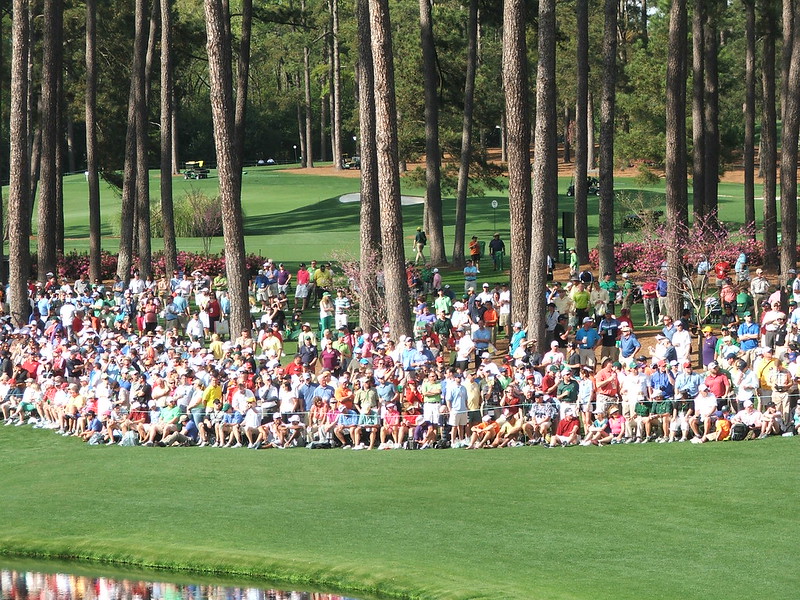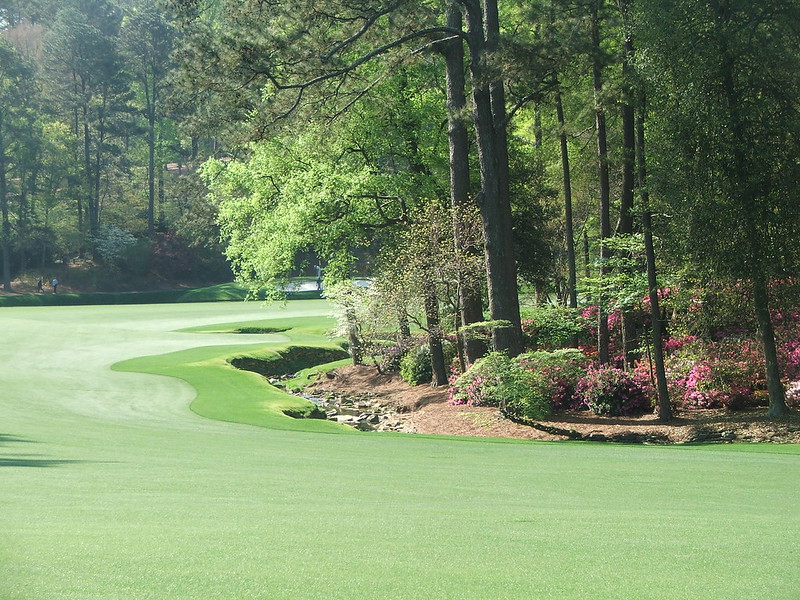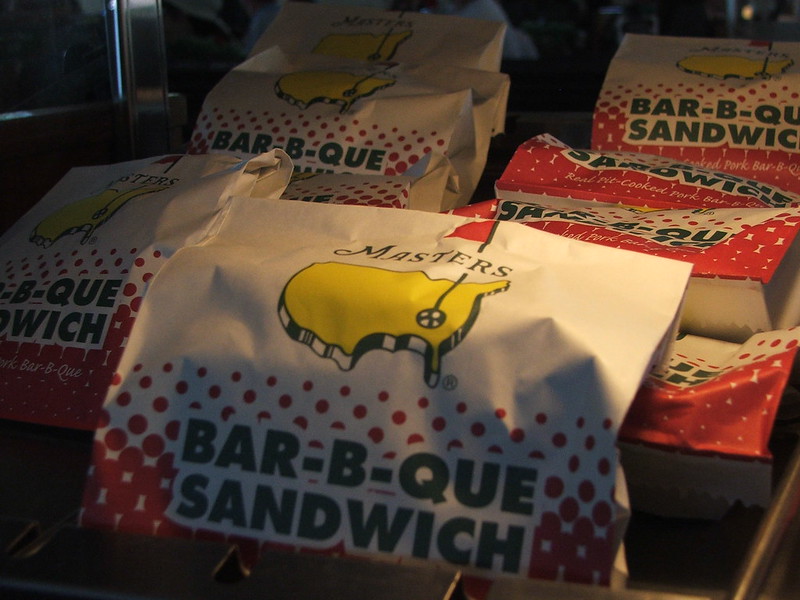I'm getting closer to the technicolor of Augusta . . .
Returning home after a traumatic hospital stay is a big
deal. I’m trying to mentally shift focus and it’s more complicated than I
thought it would be. My white blood cell count yesterday was 4 (which is good)
and I have an appointment with my doctor tomorrow at 10:45am. My focus now is
to break through and establish a new normal. I don’t want to be a patient any
more, I want to live an everyday life, spend time with family and friends and play
golf. There was a time when a 4 represented a good score on a two-shot hole and
when 10:45am represented a tee time, and not a clinical exam time. I want my old
life back. Seeing the lush green rolling hills of North Georgia and smelling
pine needles would be the ultimate shock treatment to allow me to hit the reset
button and get that done. It would certainly be a stark contrast to the muted grays
and browns of a hospital environment and a step up from smelling bleach all
day.
Having new DNA and a new lease on life is like being born
again. In fact, the nurses at the hospital call your transplant day your new
birthday. They say that you should appreciate the little things in life and it
is both true and a cliché. Sitting on my back deck watching the sun rise and
listening to the birds chirping is more satisfying that just about anything in the
world these days. I’ve also allowed myself the permission once again to
reimagine that by mid-summer I can again experience the sound of golf shoes crunching
on gravel, of clubs clicking against each other with a bag on my back, and to listen for the magical soft sound the ball makes when it falls into the hole and then rattles around. I'm dreaming of hearing and experiencing sounds that I previously wouldn't haven given a second thought to. I can't wait to hear the snap and crackle of Velcro when I unfasten my golf glove again for the first time. I also hope to one
day return to links golf and listen to its distinctive sounds: the inevitable
wind blowing through the long fescue in the dunes, the cawing of seagulls floating overhead, the flag fighting to stay upright in a stiff breeze and the sound of distant waves.
In the end, the lessons from my near-death experience aren’t
that complicated. Live the golden rule.
Do unto others as you would have them do unto you. Be nice to people. Give and
you shall receive. Watch It’s a Wonderful
Life and it’s all there; friends and family are far more important than
power or money.
Being back home has been a liberating experience especially
as my doctor lifts some restrictions. I have begun to ease back into
normal routines like showering without permission, cooking, reading the
newspaper without needing to wear gloves, and staring idly into the fireplace
for hours on end. The temptation to hit a few balls here and there is also
quite compelling. As I mentioned in a previous post I still have a PICC line
protruding from my arm so that I can give and receive blood easily. PICC lines
are not conducive to physical activity, including golf. Compared to tennis or
running, though, golf isn’t that physically taxing and I don’t see how it could
interfere with my treatment. They told me no contact sports when I was
discharged, and golf isn’t a contact sport. How harmful can it be to hit a few
chip shots in the backyard?
Moron.
I ended up having to go to the emergency room one sun-splashed Sunday morning in the late fall after I developed a blood clot in the same
arm that my PICC line is in. I’m not saying there is a correlation between
hitting balls and the blood clot. In fact, I’m going to exercise my Fifth
Amendment right against self-incrimination because technically there is no
proof that I actually hit balls. The blood clot could have developed for other
reasons. And besides, the medical literature offers conflicting research on the
impacts of the golf swing, peripherally inserted central catheters and blood clots.
Most studies don’t prove a correlation, at least when the golfer is just hitting
wedges. If I had snuck in a couple of drives, well that may be a different
story and potentially could have caused some damage.
In any event, the penalty for (allegedly) golfing with a
PICC line is a self-administered needle to the stomach every day with an
anticlotting drug. The penalty doesn’t seem to fit the innocent nature of the crime.
A two-shot penalty would have been sufficient, but 120 days (and counting) of shots to the abdomen seems a bit much for such a small infraction of the rules.
“The wife” says I like to complain and I probably do. Although I count my blessings every day, after half a year at home you do start to go stir crazy. While I didn’t have to wear an ankle bracelet like Bernie Madoff or Dominique Strauss-Kahn did during their house arrests, the injustice of the situation has begun to weigh on me mentally the more time progresses.
To add insult to injury I have to follow a restricted diet
(called Neutropenic) because my body can’t ward off infection yet. Among the
foods in the bad category are fast foods, including In-N-Out Burger, Jimmy Johns
and Jersey Mike’s. A sub sandwich, or “cold cuts,” as the doctors describe them with a menacing tone, could kill me
because the meats sit out all day and grow bacteria on them. They warn you off
eating an Italian Hoagie as if your finger were on the pin of a
hand grenade. Kill joys. I also can’t
have sushi. Blueberries, raspberries, and strawberries are to be avoided like kryptonite. But the indignities
get far worse. The greatest indignity of all is that I can’t eat unpasteurized
cheese. This includes blue cheese, brie, and Gorgonzola. The ultimate
horror is that I can’t eat fresh Pecorino Romano or Permagiano-Reggiano. I get
the sense that transplants are easier for people of Anglo-Saxon descent; telling someone of Italian heritage they can’t eat fresh grated cheese is the ultimate indignity. At
least I suffer in good company; my Jewish brethren also suffer because having a
bagel with lox is also forbidden.
At my stage in this nightmare leukemia journey there is no
sense of a permanent peace. Although my prognosis to date has been good, unfortunately,
the disease can come back, so there is always a small voice in the back of my mind that I can't silence. For now, I have to block all that negativity out because we’re
gearing up to go to the Masters. I hope I have enough stamina to walk the
grounds a few hours a day. After going so long without exercise I am in a
weakened state, although I am looking forward to cautiously walking up and down the steep hills and
breaking a sweat for the first time in almost a year.






